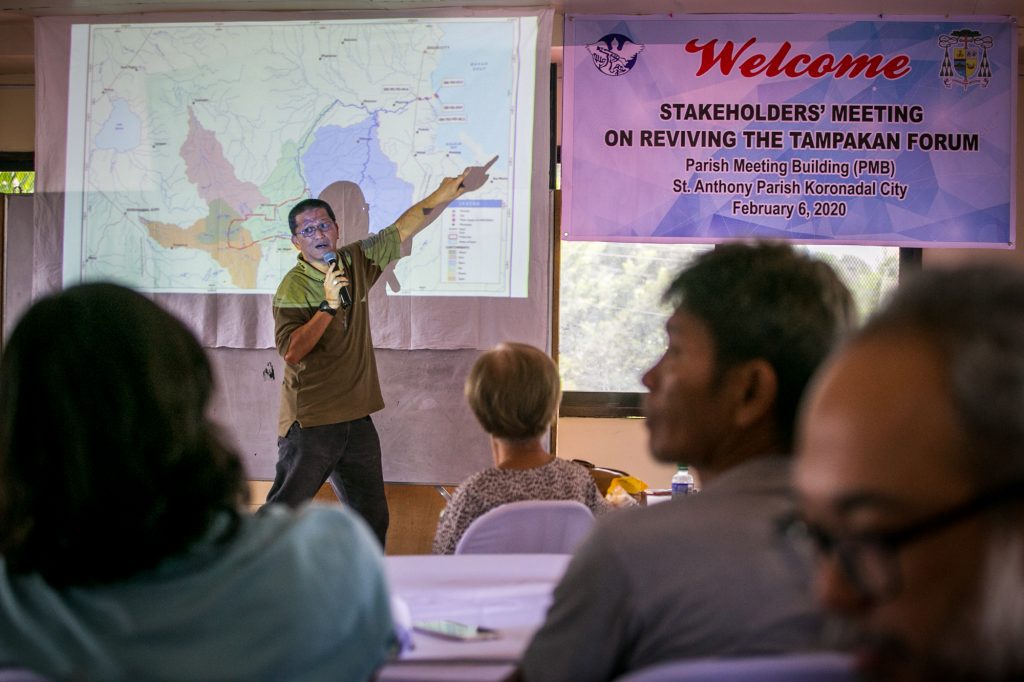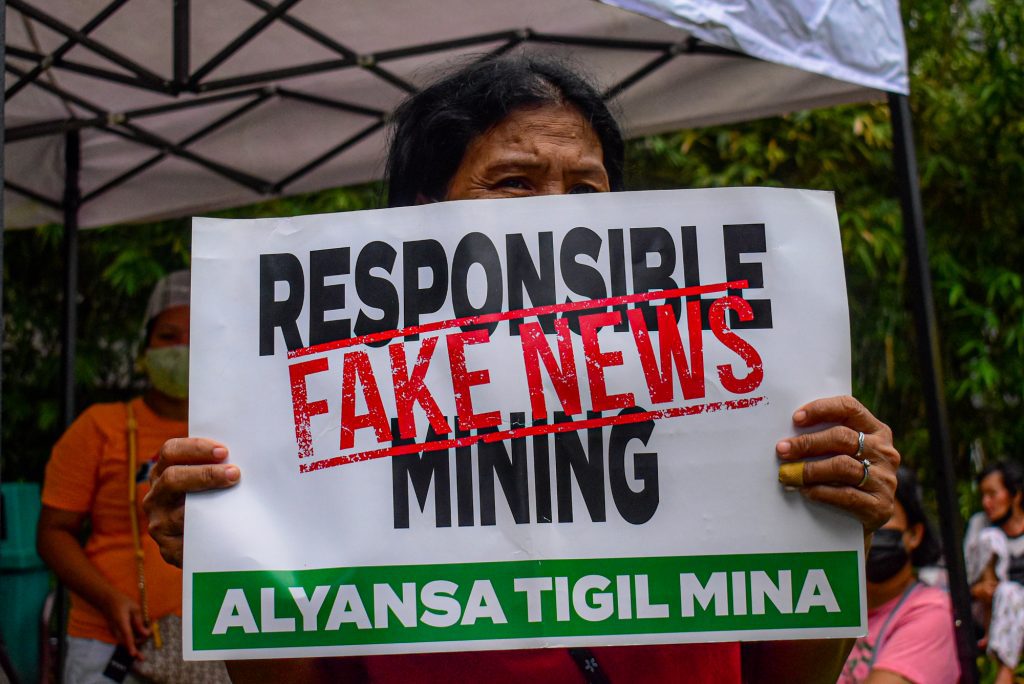
The Diocese of Marbel launched a campaign opposing the lifting of the open-pit mining ban in South Cotabato province in Mindanao on August 16.
The diocese aimed to gather signatures for a petition demanding the Provincial Government of South Cotabato to “stand firm in its duty to ensure the safety, convenience, and well-being
of its constituents.”
Bishop Cerilo Casicas of Marbel said the local government must “protect the people and the environment” by upholding the Provincial Environment Code that prohibits open-pit mining operations.
“There are people who are lobbying before the provincial government to lift the ban on open-pit mining. We cannot allow that to happen,” the prelate said in a virtual press briefing.
Bishop Casicas said his diocese will mobilize the Basic Ecclesial Communities to gather support against the lifting of the ban “but the Church will allow the public to decide on their own judgment.”
The prelate urged the faithful to “discern on why we need to act to protect the environment and oppose any policy that will threaten Our Common Home and the poor communities.”
In March, the Municipal Council of Tampakan passed a resolution seeking the lifting of the provincial ban on open-pit mining.
The existing ban is reported to be the reason behind the delay of the development of the Tampakan Mining Project, Southeast Asia’s largest known undeveloped copper and gold minefield.
Tampakan Forum, a network of environmental activist groups, tribal communities, and ecumenical movements started the rollout of the signature campaign last week.
The Forum, which was first organized in 2011 by the Diocese of Marbel, was revived on February 7, 2020, to spearhead the campaign against the large-scale mining project.
Fr. Jerome Millan, director of the diocesan social action center and convenor of the Tampakan Forum, said there is “enough reason” for the provincial government to uphold the ban on open-pit mining.
“If permitted, the mining project will threaten our food supply, water sources, and will displace thousands of residents especially the Indigenous communities,” the priest said.

Sagittarius Mines, Inc. is the proponent of the mining project that will affect at least 32 percent of agricultural lands and 75 percent of forested areas in the provinces of South Cotabato, Sultan Kudarat, Sarangani, and Davao del Sur.
The Tampakan copper-gold mine in Mindanao is the single largest foreign direct investment in the Philippines. It has the potential of yielding an average of 375,000 tons of copper and 360,000 ounces of gold per year.
Bro. Patricio Corpus, FMS, president of the Notre Dame of Marbel University, encouraged stakeholders to consider the young people in making policies about destructive extraction projects.
“Whatever we decide, we should focus on ensuring the future of the younger generation. We must prepare the future for the young people so that the environment will sustain them,” he said.
Bishop Valentin Dimoc, chairperson of the Commission on Indigenous Peoples of the Catholic Bishops’ Conference of the Philippines, called on the civil society groups and other church institutions, “not just in the province but in other parts of the country, to support the campaign against the Tampakan mining project.”
Rodne Galicha of Living Laudato Si Philippines said every diocese “must follow suit and support the efforts” of the Diocese of Marbel.
“We encourage them to not only take a stance for South Cotabato but also for their respective ecclesiastical territories,” he said.
Galicha said the signature campaign is “an actual response to the calls of Pope Francis’ encyclical letter Laudato Si’,” adding that the campaign “has national significance because the local policy strengthens local natural resources governance.”
He said if local governments have strong environmental policies, “they can empower grassroots communities’ right to a healthy and balanced ecology.”






0 Comments